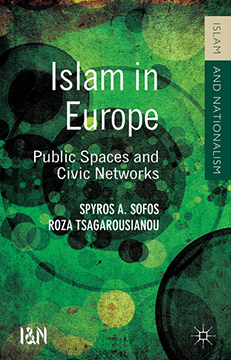
Islam in Europe: Public Spaces and Civic Networks is the product of six years of research among Muslim communities in Belgium, France, Germany, the Netherlands and the UK and draws upon extensive fieldwork and interviews with 735 informants from all walks of life.
Instead of positing particular definitions what it means to be Muslim, the authors invited and encouraged informants to reflect on who they are and on the meaning and place Islam has in their lives. A wealth of information relating to daily practices at home, in the neighbourhood and the workplace, inside and outside the mosque, to watching movies, playing videogames, seeking the advice of agony aunts, looking for “Mr or Mrs Right”, marvelling at jihadi videos reveals the fascinating and complex ways in which European Muslims construct notions or identity, agency, solidarity and belonging, or how they negotiate and redefine religion, tradition, authority and cultural authenticity.
The book, says Professor Jørgen S. Nielsen of the Center for European Islamic Thought, University of Copenhagen, constitutes” a valuable pointer to future lines of research” as it takes the reader “beyond analysis of society and politics. Its focus is the complex and tense field of the conceptual: in what ways are Muslims in Europe European Muslims; what do events and related discourses do to affect the formation of European Muslim identities?”






